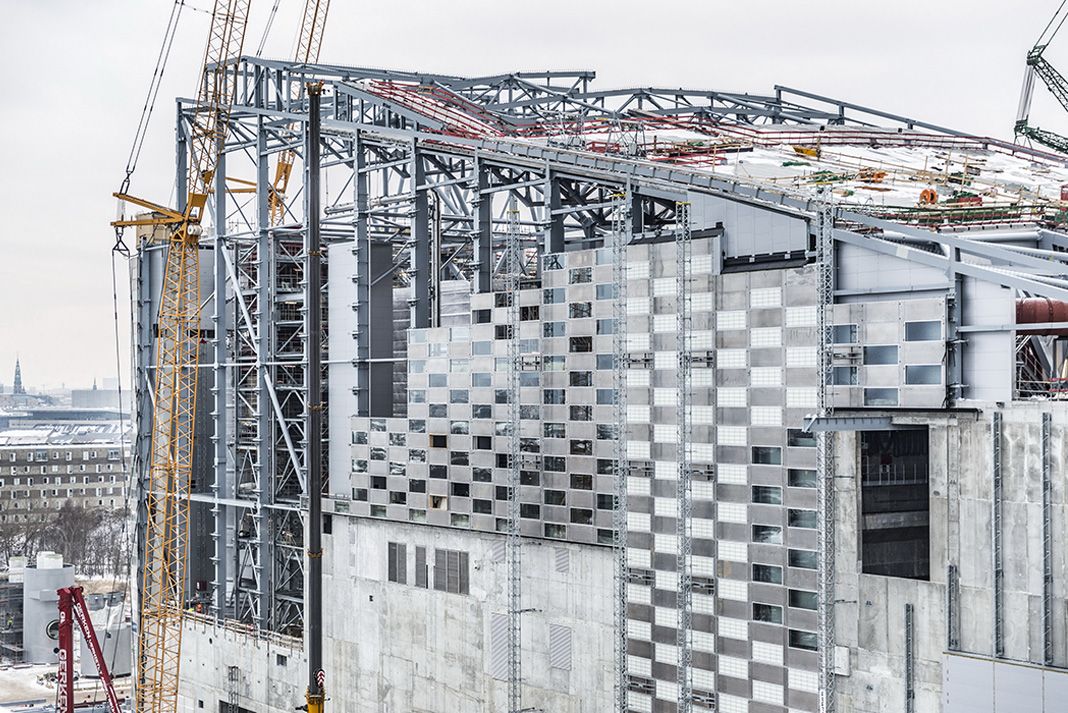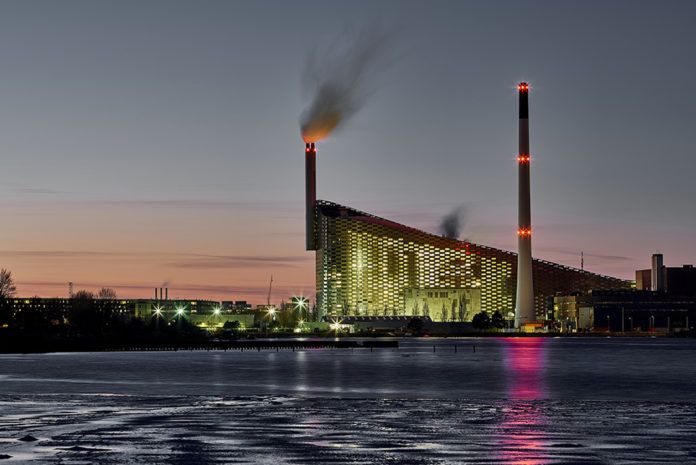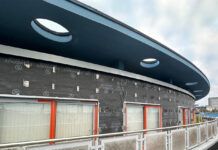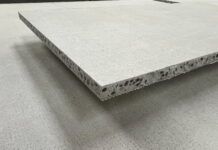A new project in Copenhagen designed by Bjarke Ingels Group Architects has turned a waste-to-energy plant into a 95,000 square metre tourist attraction. Located on Amager island, the Amager Resource Centre incorporates a ski slope into the roof, walking trails and a rock-climbing wall up one face.
Nicknamed Amager Bakke, or Amager Hill, the 100m building will incinerate over 435,000 tons of waste per year and serve about 140,000 local households. Given the potential dangers of such a massive operation, Kalwall translucent cladding has been used extensively not only for its aesthetics and energy efficiency but also for its excellent explosion-venting and blast-resistant properties.
Kalwall can be specifically designed to be the weak point in the building envelope in order to relieve pressure created by any explosion, thereby reducing the risk of damage to the primary structure and the occupants. The panels work to vent pressure out of the building, allowing it to withstand an explosion without collapsing roofs or floors. The panels are designed to release from their mounting system but remain attached to the side of the building to avoid becoming falling debris. The interior of the panels are shatter-proof and include a Fibre-Reinforced Polymer (FRP) face sheets that can be customized to withstand 230 ft-lbs (312J) of impact. They can be 1500mm or 1200mm wide and of any length up to 3250mm. By following design criteria, the system will achieve FM (Factory Mutual) approval.
In addition to the safety aspect, Kalwall also provides dramatic savings in energy consumption. The even distribution and deep penetration of light through Kalwall means less artificial lighting is needed, thereby reducing energy costs while its exceptional thermal performance and insulating properties reduce heating costs.





